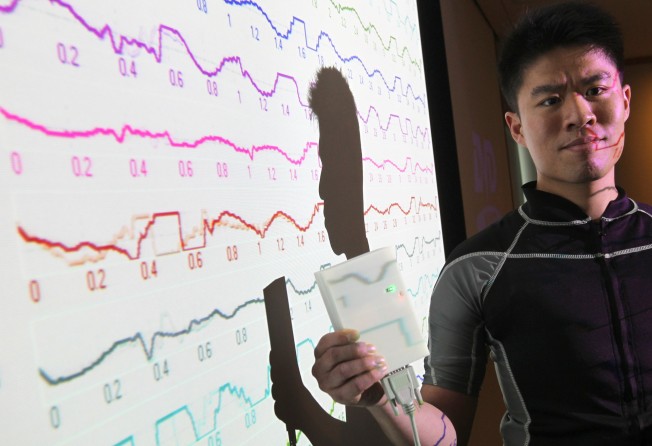City University researchers develop life-saving ‘smart’ shirt that can detect heart problems
Wearable 'sports top' ECG monitor designed for high-risk patients

Researchers at City University have developed a next-generation “smart” shirt that could help detect heart problems before and when they arise.
The electrocardiograph monitoring shirt, which resembles a sports top, fits snugly to a person’s body. The potentially life-saving shirt, however, has 10-inch long silicon sensor pads that detect the heart’s electrical activity and send information via Bluetooth to a ECG box that can be carried around in a waist pouch or to a computer or digital device.
“This will save lives,” said Raymond Lam Hiu-wai, assistant professor at the department of mechanical and biomedical engineering. “It enables medical professionals to constantly monitor the heart activity of patients,” he said.
City University's shirt and ECG box weighs about 3 to 5 kilograms and currently costs around HK$20,000 to manufacture said Lam.
Heart disease is the second leading cause of death from disease in the city. In 2012, 34,533 in-patient discharges and deaths in the city were related to coronary heart disease, according to government statistics. Hong Kong has seen an increasing trend in deaths due to heart disease since 1993 when there were about 15,000 deaths.
“It’s certainly a real development,” said Chris Wong Kwok-yiu the former president of the Hong Kong College of Cardiology. If the technology could be produced affordably, and be commercialised soon it could prove to be a boon to the elderly and those with a history of heart disease in the family.
Wong said the technology could be adapted to monitor pilots, soldiers, firefighters and other otherwise healthy people exposed to extreme circumstances.
“Smart” wearables are proving a popular trend in the technology industry, with items like mood-detecting bras, smart contact lenses that help those with diabetes monitor and manage their glucose levels, as well as watches and bracelets that monitor heart rates for exercise enthusiasts.
The device, which would have to be custom made for each patient, would likely not work for obese patients as an ECG would likely not function through layers of flesh.
The university is currently in talks with local NGOs to test the device on the elderly. Researchers have worn the device for 10-hour stretches, going about their daily duties with ease, said Lam.